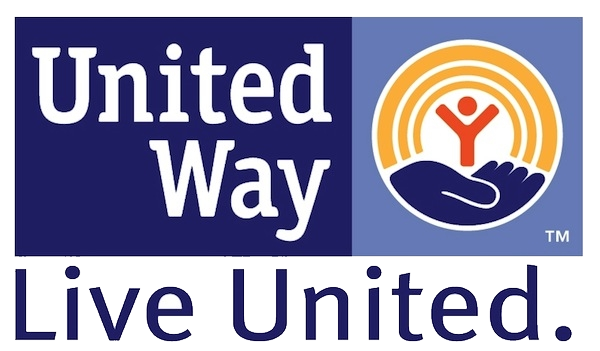He cited a 2008 Department of Defense survey of 13,000 spouses of active-duty service members; it showed that while 53% said they felt their children coped well or very well with the absence of one parent, 23% felt that their children coped poorly or very poorly. The spouses also reported that 60% of the children had increased fear or anxiety, 57% had increased behavior problems at home, 38% had decreases in academic performance, and 36% had increased problems at school. http://bit.ly/qGJL1j
The lingering effects of trauma
Excellent article by a world-reknowned expert on trauma http://bit.ly/n2fFBb
POST Traumatic Stress Disorder (PTSD) is not an illness or indication of “LMF” – low moral fibre – as was once believed. Instead, it’s a natural reaction to a highly abnormal event, says Professor Gordon Turnbull. “PTSD seemed to have so many different types of manifestation. After everything I’d seen, I couldn’t possibly describe it as an illness. All my research, all my years of clinical experience, had led me to believe it was a survival tool; perhaps our ultimate survival tool.”
Giffords’ recovery renews focus on coverage gap for veterans
A must read. “From the critical moments after she suffered a gunshot wound to the head in January to her triumphant return to Congress last week for a vote on the debt-limit deal, Rep. Gabrielle Giffords owes her recovery in no small part to veterans with similar injuries” .http://bit.ly/o1v89T
APA: Vets in College at Risk for Suicide
G.I.s who come home from war and go on the college appear to be harboring high rates of suicidal thoughts, according to a new survey. http://bit.ly/oKTVIE
Shamefully Delayed Care is Killing America’s Veterans
Advocate, advocate and then advocate some more. Pick up the phone and call your Congressional Offices and tell them enough w/ the platitudes -our warriors need urgent action-Enough of the stalling & delay
“For veterans and their families, such delays cause unnecessary grief and privation. And for some veterans, most notably those suffering from combat-derived mental illnesses such as PTSD, these delays may make the difference between life and death.” http://bit.ly/rlTCm9
Antidepressants and Post Traumatic Stress Disorder
Good information contained in this article/ “Thus, it may not be surprising that an SRI study in veterans produced negative results. Second-generation antipsychotics (SGAs) are commonly used medications for SRI-resistant PTSD symptoms, despite limited evidence supporting this practice,” the authors were quoted as saying”. http://bit.ly/qzfq9N
Bay Area law enforcement officers train to deal with mental health issues
There should be a lot more of these training programs nation-wide. Sadly, there are not. Why?. The proverbial “budget constraints”. It’s estimated that 7 to 10 percent of all police contact involved some mental health angle. Alameda County has one of the highest percentage of mental health problems in California, and Oakland accounts for much of the county’s burden. http://bit.ly/ohuARE
In addition to learning the danger signs for conditions such as depression and PTSD, which experts say are increasingly common among Oakland teens, the officers also learned about problems that afflict the elderly, such as Alzheimer’s and dementia, as well as crisis de-escalation, mental health problems among the homeless and developmental disabilities. One BART officer said he was particularly interested in the threat de-escalation component of the class. BART officers have been involved in two high-profile shooting deaths in the past three years. Many say both deaths could have been avoided if the officers had received better training on de-escalating crisis situations before they get out of hand.
Veterans wait too long for mental health services, reports say
“The VA system makes you want to give up and try something else,” added Williams, who testified on behalf of the National Alliance on Mental Illness. http://wapo.st/qPk2Y1
Healing the Brain, Healing the Mind
The confluence of TBI and posttraumatic stress disorder (PTSD) may be the hardest problem confronting veterans of the current conflicts and those who care for them. http://bit.ly/oV7M8J
CBO: Potential Costs of Health Care for Veterans of Recent and Ongoing U.S. Military Operations
Given the state of cost cutting mania in Washington how likely do you believe that this care will be funded out through 2020 especially since it’s discretionary?. Interesting article and well worth reading. The only way for the answer to be yes is to get involved in veteran advocacy issues.
The medical costs associated with VHA’s treatment of OCO veterans could, in CBO’s estimation, total between $40 billion and $55 billion over the 10-year period from 2011 through 2020, depending on the number of military personnel deployed to overseas contingencies in the future and the rate of growth of medical expenditures per person. That amount would be in addition to the $6 billion that VHA had spent on OCO veterans’ health care by the end of 2010. VHA is funded by annual discretionary appropriations (unlike Medicare, for example, which is funded by permanent appropriations); therefore, the estimated amounts would only be spent if lawmakers decided in the future to fully fund the care that OCO veterans are receiving from VHA under current policies. http://bit.ly/oabwqb







